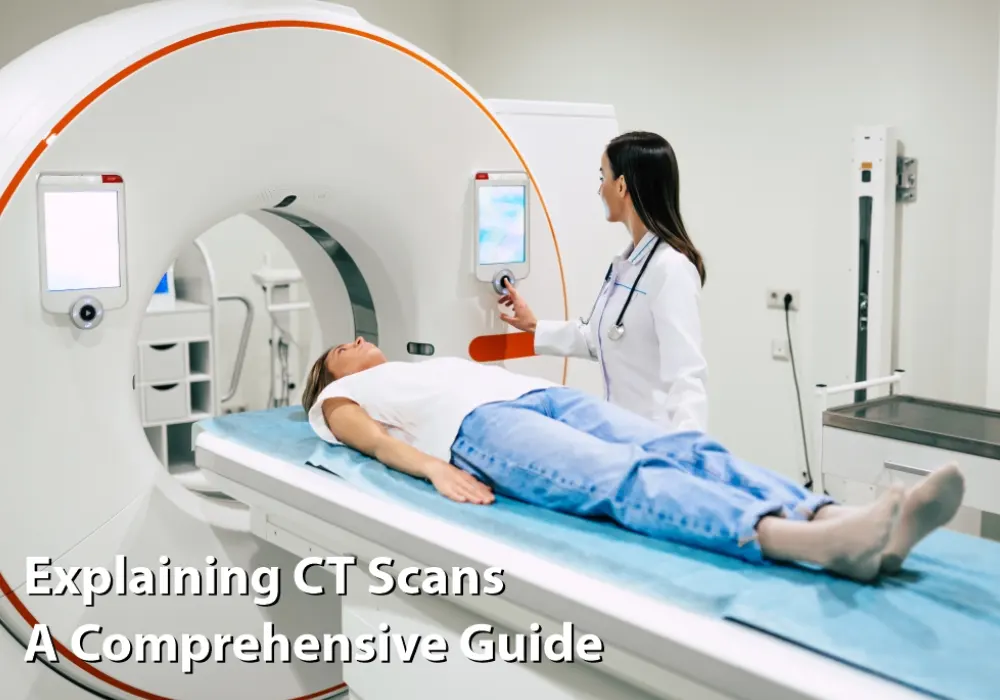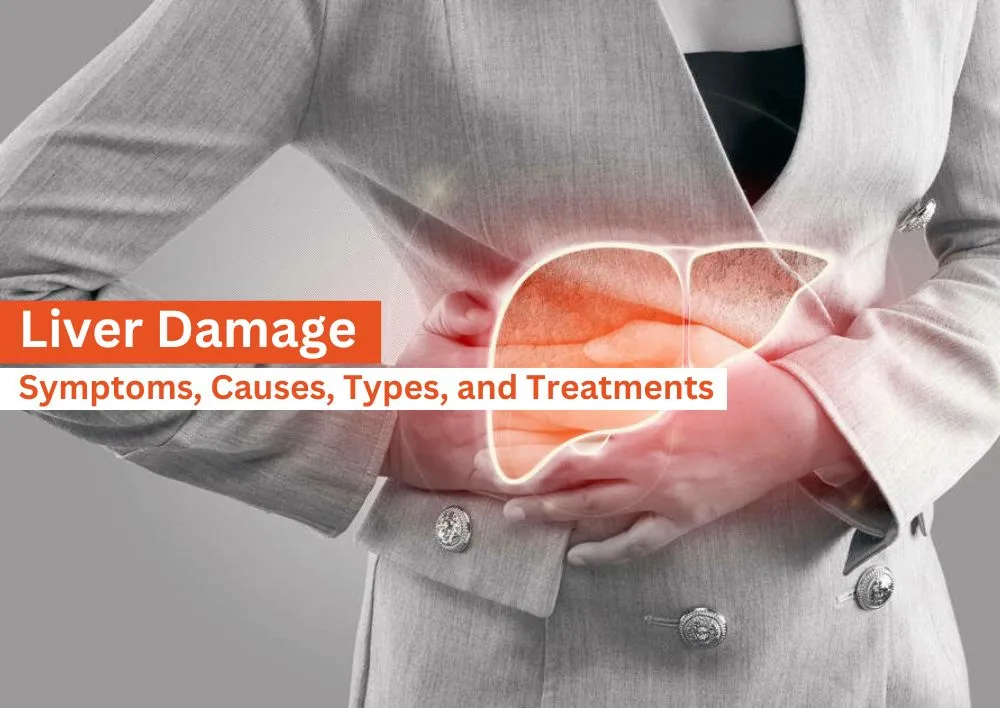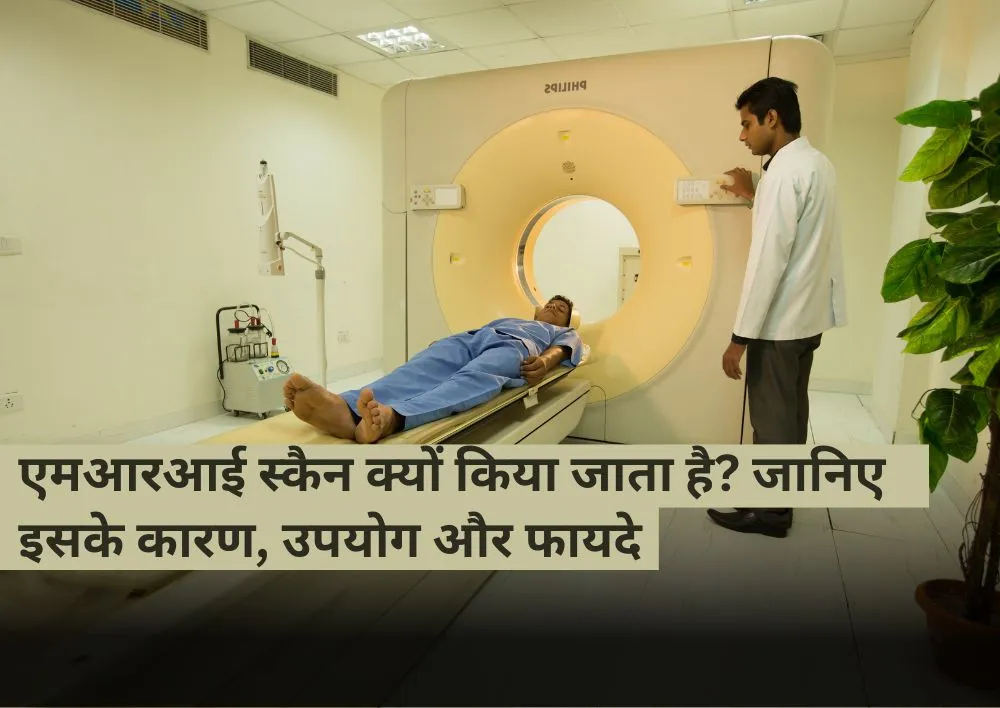Explaining CT scans: A Comprehensive Guide
In this modern world, technology has completely transformed the way to diagnose and treat health issues. Computed Tomography (CT) scan is one of the modern diagnostic tools which are used to visualize the internal structure of the human body to diagnose a variety of health issues. Computed Tomography Scan, also known as Computed Axial Tomography Scan (CAT scan) is an advanced diagnostic tool that provides doctors with the images of body’s internal structure.
This helps the doctor diagnose different kinds of health issues related to our Bones, Muscles, Organs, and Blood vessels.
This comprehensive guide to CT scan includes everything about CT scans from the introduction of CT scans, their types, benefits, uses procedures, preparations, risks, and costs.
Table of Content
- About CT scan
- Types of CT scan
- Uses of CT scan
- Working on CT scan
- Benefits of CT scan
- The procedure of a CT scan
- Preparation for CT scan
- Risks/ Side Effects associated with CT scan
- Cost of CT scan
About CT Scan
A computed tomography scan (CT scan or CAT scan) is a medical imaging procedure that involves the use of a rotating X-ray beam to create detailed images of the inside of the body. Medical professionals recommend the CT scan if they are not able to see the problems clearly in regular X-Rays.
The CT scan provides a clear view of the inside of your body including blood vessels, organs, muscles, and bones than regular X-rays. The CT scanner rotates around the body to image the target area from different angles. A computer system is used to combine multiple X-ray images to create a three-dimensional (3D) image of the body.
CT scans are typically used to diagnose a variety of health issues when other diagnostic tools are not able to provide precise information. The commonly diagnosed conditions include Cancer, Heart disease, Stroke, Lung disease, Infections, Bone injuries, Trauma, and Tumors.
What are the Types of CT Scan?
There are different types of CT scans with a particular purpose.
Here are some of the most commonly recommended computed tomography scans:
CT scan Head: The CT scan of the Head is used to create images of the brain, sinuses, and eye sockets with the purpose to diagnose a variety of brain conditions, such as stroke, brain tumor, head injury, and many more.
Chest CT scan: CT scan of the chest is used to create images of the lungs, heart, and other structures in the chest area to diagnose a variety of conditions, such as pneumonia, heart attack, or lung cancer.
Abdominal CT scan: CT scan abdomen is used to create a picture of the abdominal area to view the organs, such as the liver, kidneys, spleen, etc. It helps doctors diagnose a variety of health issues such as gallstones, kidney stones, appendicitis, and many more.
Pelvic CT scan: The Pelvis CT scan or Pelvic CT scan is typically used to view the organs in the pelvis area. The pelvis scan creates images of organs in the pelvis such as the bladder, prostate, lymph nodes, uterus, colon, small intestine, and pelvic bones. The doctor requests a pelvic CT scan to diagnose health issues including urinary tract infection, uterine cancer, or prostate cancer.
CT Angiography (CTA): The CT Angiography or CT Angiogram is an advanced type of CT scan that is used to view the blood vessels. This scan involves injecting a special contrast dye into the bloodstream of the patients and then taking images. The commonly recommended types of CT angiogram include CT Coronary Angiography, CT Pulmonary Angiography, CT Renal Angiography, and CT Cerebral Angiography. These Angiographies are used to diagnose a variety of conditions including heart-related issues, abnormalities in the blood vessels of the kidney, stroke, aneurysm, stenosis, and many more.
Uses of CT Scan
Computed Tomography (CT) scans are used to diagnose health issues in different medical specialties such as trauma, oncology, orthopaedics, neurology, cardiology, etc. to detect and diagnose a wide range of health conditions, including:
- Cancer: CT scans can be used to detect cancer, assess the extent of cancer, and guide cancer treatment.
- Heart disease: CT scans can be used to diagnose heart disease, such as coronary artery disease, and assess the severity of heart disease.
- Stroke: CT scans can be used to diagnose stroke, assess the damage caused by stroke, and guide stroke treatment.
- Lung disease: CT scans can be used to diagnose lung diseases, such as pneumonia, lung cancer, and emphysema.
- Abdominal and pelvic disorders: CT scans can be used to diagnose a variety of abdominal and pelvic disorders, such as appendicitis, gallstones, and kidney stones.
- Bone and joint disorders: CT scans can be used to diagnose bone and joint disorders, such as fractures, arthritis, and tumors.
- Trauma: CT scans can be used to assess the extent of injuries in trauma patients.
- Headaches: CT scans can be used to rule out serious causes of headaches, such as brain tumors and aneurysms.
What are the Benefits of CT Scan?
Here is a list of benefits of CT scans:
- Quick, Pain-free, Non- Invasive, and Safe procedure
- Highly detailed images
- Precise and Accurate Result
- It can image bone, soft tissue, and blood vessels all at the same time.
- Less sensitive to the movement of the patients
- Cost Effective
How does a CT scan work?
A CT scan uses a rotating X-rays beam to create a series of cross-sectional images of the body. During the scanning process, the rotating gantry emits X-rays that pass over the patient. The X-rays are absorbed by different tissues in the body at different rates. The computer system is then used to combine the cross-sectional images to create a 3D image of the body.
What is the Procedure for CT Scan?
The CT Scan procedure is very simple and pain-free. It involves the following steps:
- You will be instructed to lie straight on a table that slides into the CT scanner.
- The scanner will rotate around you and take multiple X-ray images.
- During the procedure, the technician may be asked you to hold your breath to avoid the images from being blur.
- Once the required images are taken, technician will slide you out of the CT scanner.
- The entire procedure of scan usually takes about 15 minutes.
How do I Prepare for a CT scan?
Here are some general instructions that you need to follow before the CT scan:
- You will need to remove all metal objects from your body including jewellery.
- You will need to wear hospital gown.
- In the case of CT scan with contrast, you will be asked to fast for few hours.
- In the case of pregnancy and breastfeeding, you need to tell your doctor.
- Inform your doctor and technician if you are allergic/ taking any medicine.
What are the Risks of a CT scan?
Although CT scan is a safe technique with a lot of benefits. The benefits of CT scan usually outweigh the risks. Because CT scan involves the use of harmful radiations which causes some temporary side effects/ risks.
Here are some of the risks/ side effects posed by CT scan:
- Allergic reaction
- Nausea
- Headache
- Vomiting
- Swelling
- Bruising
What Happens after a CT scan?
After completing a CT scan, you can continue your routine work but in the case of contrast dye involvement, you will be asked to drink a lot of water to clear the contrast media out of your body.
Cost of CT Scan
The cost of CT scan in Gurgaon varies depending on hospital or diagnostic centre where the procedure is performed. Generally, the price of CT scan in Gurgaon is between Rs. 5000 to Rs. 20000. There are several factors which influence the cost of the scan such as the purpose of the scan, technology used and hospital/ diagnostic centre. Aside from this, type of the scan whether it is CT scan with contrast or without contrast also influence the cost of the procedure.
So, book your CT scan today at Miracles Healthcare without delay and get your quality CT scan done at pocket friendly price using 16 slice CT scanner at the best CT scan centre in Gurgaon.
Conclusion
CT scans are valuable diagnostic technique to help doctors diagnose a wide variety of medical conditions under different specialties such as trauma, orthopaedics, oncology, neurology and cardiology etc. The risks of CT scans are low, and the benefits usually outweigh the risks. If your doctor has ordered a CT scan, then without delay, get it done as soon as possible from the best CT scan Centre in Gurgaon. It is important to note that Doctor will give you some instructions that you need to follow carefully before the procedure to ensure that you get the best possible results



_in_Pregnancy.webp)









Was the information useful?
0 0